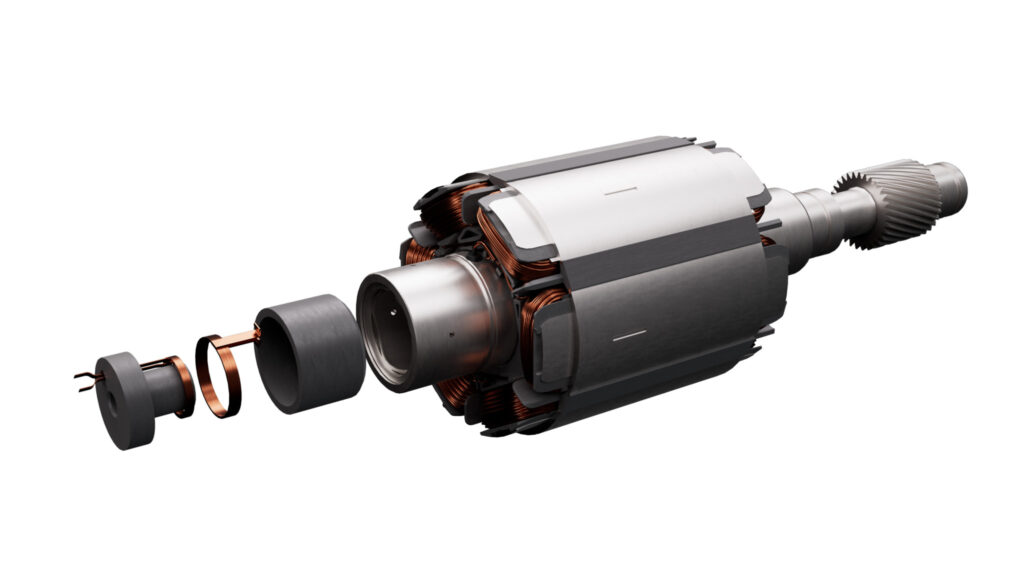ZF designs e-motor without rare earth materials
ZF says it has developed a more compact magnet-free electric motor with performance on par with the permanent-magnet synchronous designs used in most electric vehicles.
The advantage, the company says, is the magnet-free design doesn’t require rare earth materials, resulting in improved sustainability and reducing concerns about rare earth material supplies.

The I2SM (in-rotor inductive-excited synchronous motor) transmits energy for the magnetic field via an inductive exciter inside the rotor shaft, making the motor more compact while offering maximum power and torque density, ZF claims.
“With this magnet-free e-motor without rare earth materials, we have another innovation with which we are consistently improving our electric drive portfolio to create even more sustainable, efficient and resource-saving mobility,” said Dr. Holger Klein, CEO of ZF. “This is our guiding principle for all new products. And we currently see no competitor that masters this technology as well as ZF.”
Compared to today’s systems, the inductive exciter can reduce losses for the energy transmission into the rotor by 15%, ZF says. The production-related carbon footprint — a factor in permanent-magnet synchronous designs because of their magnets that include rare earth materials — can be reduced up to 50%.
“This uniquely compact electric motor without magnets is impressive evidence of our strategy to make e-drives more resource-efficient and sustainable, primarily through efficiency improvements,” said Stephan von Schuckmann, member of the board of management of the ZF Group. “We’re consistently using efficient 800-volt silicon carbide technology while eliminating rare earths — all without increasing the dimensions or weight.”
Another advantage of the rare-earth-material-free design is the elimination of drag losses seen in traditional motors.
ZF will offer the new electric motor within its own e-drive platform. Commercial vehicle OEMs will have options available for 400- or 800-volt architecture.
Have your say
This is a moderated forum. Comments will no longer be published unless they are accompanied by a first and last name and a verifiable email address. (Today's Trucking will not publish or share the email address.) Profane language and content deemed to be libelous, racist, or threatening in nature will not be published under any circumstances.